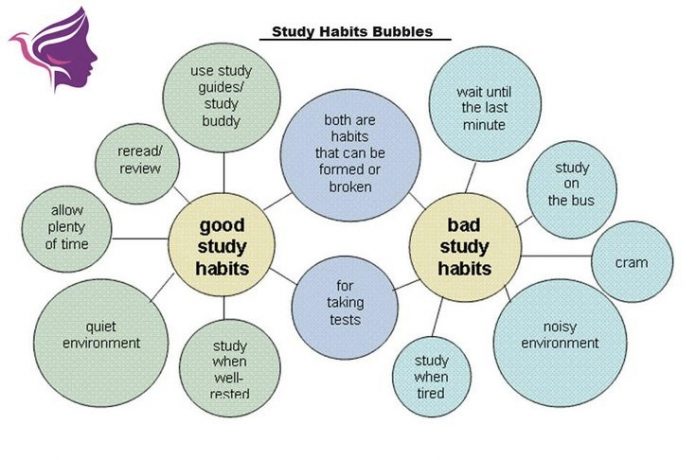- 1. Establish a Consistent Study Schedule
- 2. Create a Dedicated Study Space
- 3. Set Specific, Achievable Goals
- 4. Develop Organizational Skills
- 5. Practice Active Reading and Note-taking
- 6. Utilize Memory Techniques
- 7. Engage in Regular Review and Self-assessment
- 8. Break Study Sessions into Manageable Chunks
- 9. Encourage Group Study and Peer Learning
- 10. Teach Time Management Skills
Have you ever wondered why some students seem to thrive in school, effortlessly topping their class, while others struggle to keep up despite putting in the hours? The secret often lies not just in how hard they study but how well they study. The study habits of students play a pivotal role in their academic success, shaping their learning journey and outcomes.
SplashLearn: Most Comprehensive Learning Program for PreK-5

SplashLearn inspires lifelong curiosity with its game-based PreK-5 learning program loved by over 40 million children. With over 4,000 fun games and activities, it’s the perfect balance of learning and play for your little one.
Try for freeIn this blog, we’ll delve into the world of effective study habits that can transform the way students approach their education. Whether you’re looking to guide your child toward academic excellence or seeking strategies to motivate your students, understanding these study habits can make all the difference.
1. Establish a Consistent Study Schedule

Good study habits for students start with consistency. A regular study schedule isn’t just about blocking out time for homework; it’s about creating a rhythm that fosters focus and discipline. When students study at the same time each day, their minds become primed for learning during those periods, making it easier to dive into study mode.
Tips:
- Help students by sitting down with them to create a study calendar.
- Be realistic about the time they can dedicate daily, considering their energy levels and extracurricular activities.
- Encourage them to stick to this schedule and adjust to find what works best.
2. Create a Dedicated Study Space

A dedicated study space is crucial for minimizing distractions and enhancing concentration. This doesn’t need to be a large area—just a quiet, organized spot where students can focus on their studies. A distraction-free environment contributes significantly to more effective study sessions, allowing for deeper concentration and retention of information.
Tips:
- Ensure the study area is well-lit, comfortable, and free from distractions like TV and social media.
- Having all the necessary supplies, such as textbooks and stationery, helps keep students focused and efficient.
Related Reading: Best Tips For a Student-Centered Learning Environment
3. Set Specific, Achievable Goals
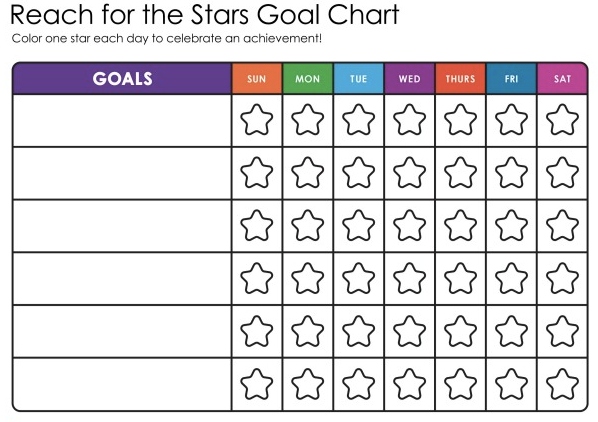
Setting goals is about giving direction and purpose to the learning process. Good learning habits involve setting specific, achievable goals that provide clear objectives for each study session. Whether mastering a math concept or completing a book report, goals should be tailored to challenge and motivate students without overwhelming them.
Tips:
- Assist students in breaking down their academic tasks into smaller, manageable goals.
- Celebrate their achievements, no matter how small, to keep them motivated. This practice boosts their confidence and shows the best study habits, fostering a sense of accomplishment.
4. Develop Organizational Skills
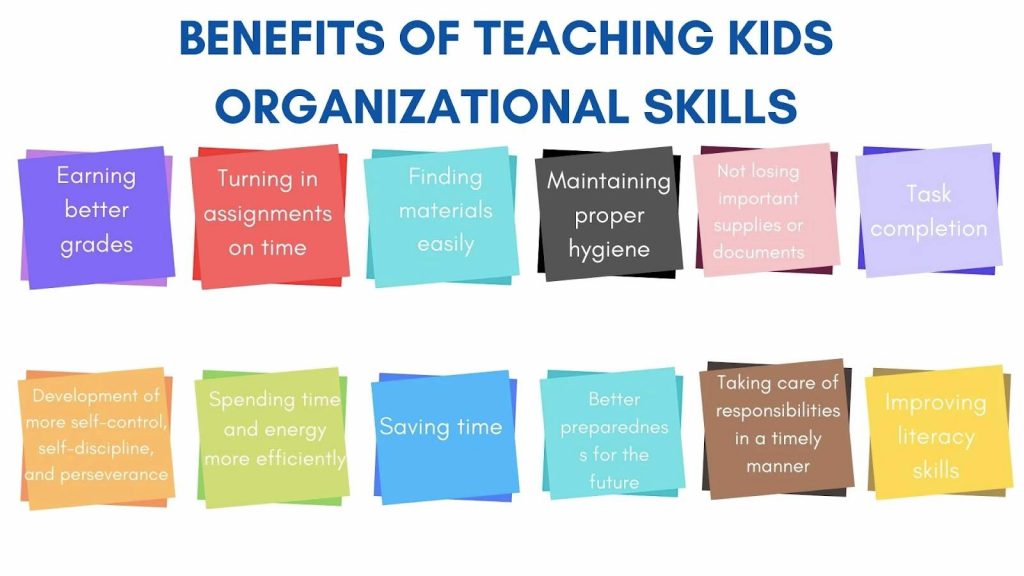
Organization is the backbone of effective studying. By using planners, apps, and other tools, students can keep track of assignments, deadlines, and tests, ensuring they’re always prepared and never caught off guard. Improved study habits stem from this sense of preparedness, reducing stress and enhancing the ability to focus on the task.
Tips:
- Introduce students to various organizational tools and help them find the ones that suit their style.
- Encourage regular updates to their planners and check-ins to reassess and adjust their plans as needed. This guidance is crucial in teaching students how to build good study habits that will serve them throughout their academic careers and beyond.
Related Reading: How to Stay Focused While Studying: 15 Best Tips
5. Practice Active Reading and Note-taking

Active reading goes beyond just scanning text; it involves engaging with the material, asking questions, and making connections. This approach significantly improves comprehension and retention, key for students aiming to be successful in school. Similarly, effective note-taking helps students organize and process information, making study sessions more productive.
Tips:
- Encourage students to highlight key points and summarize information in their own words.
- Teach them different note-taking methods, such as the Cornell method, to find what works best for them.
- Discussing the material with them can also reinforce their understanding and academic improvement.
6. Utilize Memory Techniques
Memory techniques like mnemonic devices and visualization can transform how students remember facts and concepts. These tools make learning more enjoyable and efficient by associating hard-to-remember information with vivid images, acronyms, or rhymes.
Tips:
- Introduce students to various memory aids and encourage them to use these techniques in their study sessions.
- Practice with them initially to show how these methods can be applied to different subjects, enhancing the study habits of students.
Related Reading: Understand How Rote Memorization Works for Children!
7. Engage in Regular Review and Self-assessment
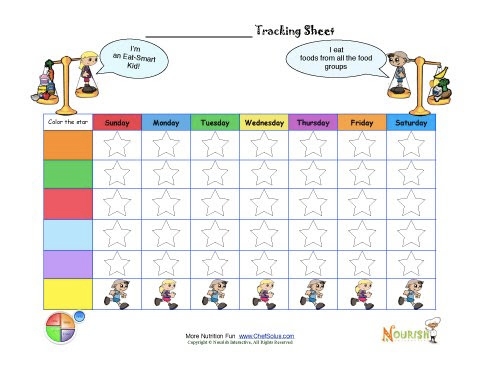
The habit of regularly reviewing material helps to consolidate learning and prevents the need for last-minute cramming, which is often less effective. Encourage students to set aside time each week to review what they’ve learned, integrating new knowledge with what they already know.
Tips:
Teach students self-testing techniques, such as flashcards or practice quizzes, to assess their understanding of the material. This habit of self-assessment fosters independence and a proactive approach to learning, key components of successful study habits of students.
8. Break Study Sessions into Manageable Chunks

Long study sessions can lead to fatigue and decreased productivity. The Pomodoro Technique, which involves breaking work into short intervals (typically 25 minutes), followed by a 5-minute break, can help students maintain focus and energy.
Tips:
Assist students in planning their study time around this technique and encourage them to take genuine breaks during these intervals, free from study-related activities. This boosts concentration and helps manage time effectively, a critical aspect of the study habits of students aiming for academic success.
Related Reading: Best Concentration Games for Kids to Improve their Focus
9. Encourage Group Study and Peer Learning

Group study and peer learning are invaluable for reinforcing material through discussion, explanation, and collaborative problem-solving. These sessions can clarify difficult concepts and enhance understanding through shared knowledge.
Tips:
- Parents and teachers can facilitate by helping students form study groups with peers with similar academic goals.
- Encourage them to meet regularly in a quiet, designated space and to come prepared with specific topics or questions to discuss.
- Setting clear objectives for each session can keep the group focused and productive.
10. Teach Time Management Skills

Effective time management is essential for academic success. It involves prioritizing tasks, setting realistic goals, and avoiding procrastination, which forms the foundation for good study habits.
Tips:
- Introduce students to various time management strategies, such as creating to-do lists or using digital apps to help track assignments and deadlines.
- Encourage using calendars for long-term planning and teach them the importance of starting tasks early to alleviate the stress of last-minute rushes.
11. Foster a Growth Mindset
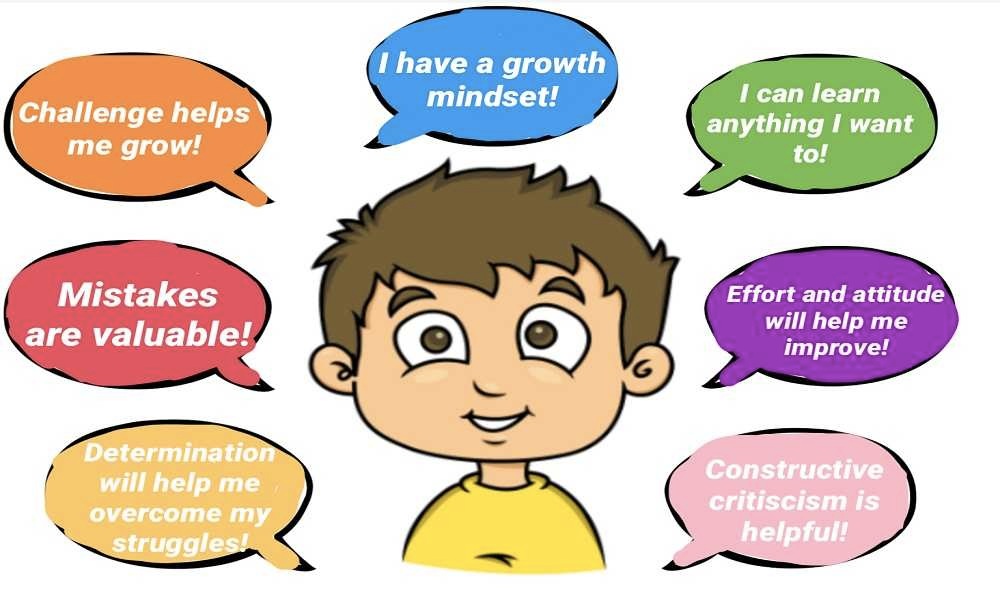
A growth mindset, the belief that abilities and intelligence can be developed through dedication and hard work, is crucial for resilience and a positive attitude towards learning. This mindset encourages students to embrace challenges, persist through obstacles, learn from criticism, and find lessons and inspiration in the success of others.
Tips:
- Parents and teachers can foster a growth mindset by praising effort over innate ability, encouraging students to set challenging yet achievable goals, and modeling resilience in facing their challenges.
- Teach students that setbacks reflect not their abilities but opportunities for growth and learning.
Related Reading: Best Hands-On Growth Mindset Activities for Kids
12. Prioritize Health: Nutrition, Sleep, and Exercise

Physical health plays a significant role in cognitive function and overall study effectiveness. A balanced diet, adequate sleep, and regular exercise can greatly enhance memory, concentration, and stamina during study sessions.
Tips:
- Ensure students understand the importance of nutritious food, sufficient sleep (8-10 hours for teenagers), and physical activity as part of their daily routine.
- Encourage them to establish and maintain a healthy lifestyle, highlighting how these habits support their academic goals and overall well-being.
Related Reading: Best Brain Teasers for Kids to Enhance Focus & Memory
Conclusion
By integrating these study habits of students into their routines, they can build a holistic approach to learning that encompasses academic skills, personal growth, and physical health. This comprehensive framework supports their success in school and their development into well-rounded, resilient individuals.
Related Reading: Exciting Grade-Wise Back to School Activities for Kids
Frequently Asked Questions (FAQs)
Why are good study habits important for students?
Good study habits are crucial because they enhance academic performance, improve time management, and reduce exam stress. These habits foster a positive attitude towards learning and build a foundation for lifelong educational success.
What habit is most important for a successful student?
The most important habit for a successful student is effective time management. It enables students to prioritize tasks, use their study time efficiently, and balance academic responsibilities with extracurricular activities and rest.
What four factors negatively affect study skills?
Four factors that negatively affect study skills are poor time management, a distracting study environment, lack of a regular study schedule, and inadequate sleep and nutrition. Addressing these issues can significantly improve a student’s ability to study effectively.


